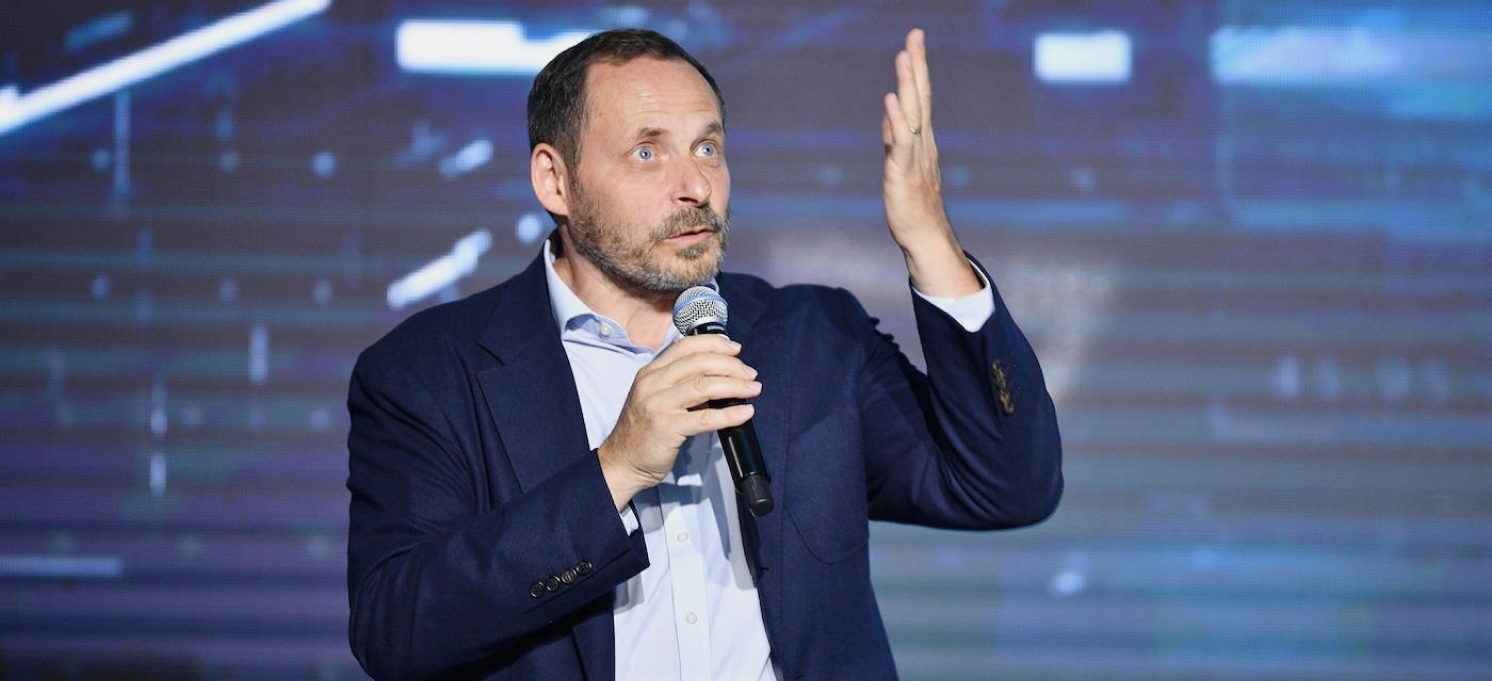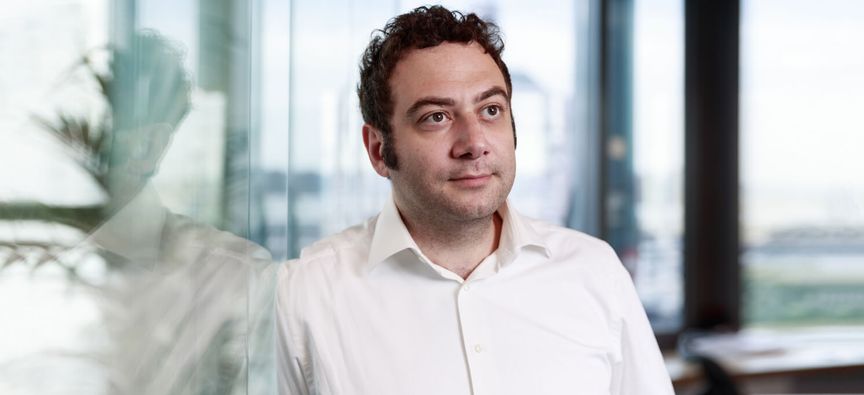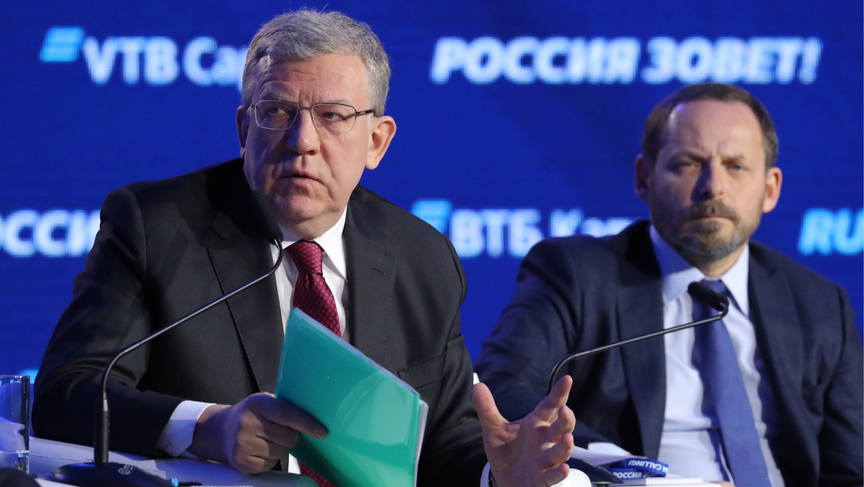
How the war divided Arkady Volozh and the Yandex management
Five months into the war, Yandex is split in two, with founder Arkday Volozh and the company’s leaders in Russia on opposite sides of the barricades. Part of the senior management stayed in Moscow and decided to save the ‘Russian Google’, the rest left, believing there is no future. The Bell explains how the war has divided Russia’s biggest IT company, and what Alexei Kudrin has to do with it.

Arkady Volozh
The start of the war
At 5:50 on the morning of Feb. 24, Vladimir Putin announced the start of his “special military operation” and people in Ukraine were awoken by Russian missile strikes. Within a few hours, about 40 leading Russian businessmen were invited to a meeting with Putin in the Kremlin. A source close to the discussions told The Bell that the key message was: “We will support business, regardless of any sections, but you must be patriotic.”
Among those invited to the meeting were the directors of Russia’s leading tech companies – Yandex, Ozon and VK.
The invitation sparked a fierce debate in Yandex’s offices. Three different sources told The Bell how the argument raged: to go, or not to go? Yandex founder Arkady Volozh was outside of Russia, so managing director Tigran Khudaverdyan had to make the call. Some of his colleagues tried to dissuade him, but Khudaverdyan himself was inclined to think he should attend. Volozh could not decide. Ultimately, it was agreed that when the head of state calls, you need to follow. To this day, many believe that was a mistake: “After all, Oliver Hughes wasn’t there, even though Tinkoff was also called,” one manager said with a shrug of the shoulders.
Within less than a month, Khudaverdyan found himself on the EU’s sanction list. Another former senior manager at Yandex, Alexander Shulgin, who was CEO of Ozon at the time, also paid a price for his meeting with Putin. Explaining the sanctions against Khudaverdyan, the EU went further than the meeting with Putin and cited the words of Lev Gershenzon, former head of Yandex.News, who said that Yandex was a key element “in concealing information about the war”.
At the start of the war, the company’s top management were in different places: some remained in Moscow, others were on vacation, while Arkady Volozh was at his home in Israel and has not visited Russia for some time. Elena Bunina, Yandex CEO at the time, was on vacation in Cyprus at the time. In early April, she wrote on the company’s internal forum that she chose not to return to Russia because of the war and instead flew directly to Israel. At the same time, she announced she was stepping down as Yandex CEO. Several other senior figures also went to Israel, including geolocation services head Roman Chernin, CEO of Yandex self-driving group Dmitry Polishchuk and Yandex.Ads CPO Vera Leizerovich.
Khudaverdyan also briefly left the country after Feb. 24, two sources close to the company told The Bell. At that time, part of the team was certain that everybody should leave and staying in Russia was dangerous; it would be simply impossible to carry on with business as usual. After a short time, though, Tigran returned to Moscow and continued to lead the company. He thought that without him, everything would fall apart. Moreover, he believed that Yandex provides services on which many people depend, as well as providing employment and income for thousands of staff and their families, several of his acquaintances told The Bell. “It seems to me, he just missed it – his work, his office,” one of them recalled.

Tigran Khudaverdyan
In Yandex, as in many other companies since the pandemic, everyone is used to working remotely. But this time it was different. “We quickly found ourselves in a situation where everybody began justifying itself and its decision. Those who stayed spoked of pressure and politics, and were met with constant criticism. Those who left remained in their bubble, isolated from the real world. Ultimately, this is a story of human tragedies,” said one Yandex employee. Even though the team was made up people who initially shared a similar outlook, and many were old friends, the gap between them kept growing.
In Russia, the team hastily tried to get rid of its most toxic assets – Yandex.News and Yandex.Gen. Strategically, the continued existence of Yandex depended on the sale of those sections, a source close to the company later told The Bell. After Gershenzon’s comments, the news service was widely debated within the company. The fact is that in 2016 Yandex refused to continue working with media that did not have a Roskomnadzor license. Since then, as the authorities continually tightened media legislation, the company complied with each new restriction to the extent that by the start of the war only state-friendly media featured in the top headlines on Yandex.
“When I came to Yandex, News wasn’t seen as a big problem within the company, even though, of course, it harmed our reputation,” said one employee. “But that only works in a world where there is no war. When the war started, calling for News to be shut down was equivalent to calling people to join in protest marches. It should have happened earlier.”
Another employee recalled how Volozh himself, when asked about News at a general staff meeting, explained it thus: we live in a country with this media landscape. In the USSR, we had Pravda, which was essential reading to know if the war had started, who was our ally, who was our enemy. Today, in the same way, the state communicates with us through licensed media and there are almost no independent titles among them.
VK, a de facto state-owned IT company previously known as Mail.ru Group, was willing to buy News and Gen. But there was no time to announce the sale: news of the upcoming deal emerged on March 15, but at exactly that moment the EU imposed its fourth round of sanctions against Russia, which included measures against Khudaverdyan. “We should have started sooner,” lamented the company’s employees. The terms of the deal were never disclosed by the company and part of it was probably delayed. The news block remains in place on the Yandex homepage.
In mid-April, Artyom Savinovsky, previously head of media services, was unveiled as the new CEO of Yandex. Khudaverdyan, who recently celebrated 16 years with the company, stepped down from all duties but remained part of the collective management team, which includes several top managers. This team has taken charge of the company’s development for many years. Nobody came up with a new role for him: “Now his official job title is simply ‘Tigran’,” said a source within the company.
Where was Volozh?
After Feb. 24, Arkady Volozh was mentally prepared to “turn the page” and divest himself of Russian assets, according to two of his acquaintances. “If Arkady had a real alternative – say ‘yes’, and we’ll send the money – he would have agreed without a second thought. Unfortunately, it’s nothing like as easy as that,” said one acquaintance. “First, the company is constantly losing value and potential purchasers know this. Second, there is political pressure. An asset that generates a billion dollars a year is a tasty morsel. The question is who to sell it to,” he explained. In addition, due to the ban on trading Yandex receipts in the USA, the company was on the brink of default and urgently needed to restructure $1.25 billion of obligations to bondholders.
Arkady was nervous. From Russia, he was persuaded to remain patient and not make any sudden moves. One of the supporters of this approach was Alexander Voloshin, a Yandex board member and former head of the presidential administration, two sources told The Bell.
By May, most of Russia’s Forbes List was under Western sanctions and a sale was underway across the country. Foreigners announced their departure from Russia or hurried to find buyers. Oleg Tinkov, who has not lived in the country for a long time, followed their example. He began seeking buyers for Tinkoff Bank back in March and, while that search was on-going, frequently criticized the “special operation” on social media. Despite this, at the end of March Tinkov was sanctioned by the UK. Within a month, Tinkov announced the sale of his 35 percent stake in Tinkoff Group to Vladimir Potanin. Immediately after that sale he gave interviews to NYT and Yury Dud (recognized as a foreign media agent) in which he criticized the war and claimed he was pressured into selling his business. There have been no further sanctions against Tinkov.
Since the start of the war, Volozh has made no public statements. This was discussed within the company. On the one hand, there was an understanding that his words could help escape sanctions; on the other there was a risk that the company could be nationalized and its leaders persecuted. “It would greatly help Volozh to state his position, of course,” said one of his acquaintances. “But it makes him awkward and uncomfortable.” Many around him advised speaking out, but Volozh saw this as self-promotion and didn’t want to get involved. “Giving an interview to get himself off the hook isn’t his style,” another source told The Bell.
The company has made attempts to escape sanctions. In both the EU and the USA Yandex has attempted to explain its work to Western bureaucrats and journalists. It has focused on how Yandex.News operates, clarifying that Yandex does not write stories itself and explaining Russia’s media laws and the role of state watchdog Roskomnadzor, said a source close to the company’s management.
But that made no difference. On June 3, the EU imposed sanctions on Volozh, citing Yandex’s promotion of state media and suppression of content critical of the Kremlin. Volozh himself described this as a mistaken and counterproductive decision. He added that he would continue to support his team as far as possible but would not seek to influence how the independent board of directors voted on his package.
Sanctions have seriously complicated the fulfilment of Volozh’s long-term ambitions – if not ended them completely. He wants to create a global business based on the various Yandex services. “He has nothing more to prove in Russia,” one senior manager explained. Volozh has long since stepped away from the day-to-day management of Yandex and has rarely set foot in Russia since 2019/20.
At that time, Yandex had to accept its failure to break into the Turkish market, its first attempt at international expansion. In 2011 the company launched its search engine on the Turkish market. Then it introduced other services there. Yandex had ambitious plans to secure 35 percent of the search market from Google. “When we entered the market, our calculations were rather bold,” recalled one employee. “We thought that nobody in the world had taken market share from Google, but we could.” However, over the first three years, Yandex secured just five percent of the search market. In 2020, the Turkish sister company closed although various Yandex services are still available in that country. Its small share of the search market made it impossible to attract advertising. “Nobody will shift for five percent of users,” a source told The Bell.
After that misadventure, many Yandex employees developed an allergy to similar schemes, recalled a former employee of the corporation. But not Volozh. He always had a range of big ideas. One of the latest was an international alliance in cloud technology. “Inspired by the international airline partnerships, the idea was to bring together a pool of states outside of Europe and the USA who were interested in their own cloud systems but lacked the technical base,” a source close to Yandex’ biggest shareholder explained. That was one of many similar ideas but, at the time the war broke out, none of them had come to fruition.
“Arkady always dreams of a range of ideas and tries to chase them in all directions,” said one of his colleagues. He highlighted the self-driving group, a business for which the Russian market would be too small and with which the company immediately wanted to go to the USA. However, since the war, all American trials were halted.
Volozh acts
As the war dragged on, the rift between Yandex directors in Russia and abroad widened. Those in Russia faced problems – political pressure, the threat of defaults, disruptions in foreign supplies due to sanctions. Volozh, meanwhile, wanted to identify everything that could survive and develop abroad and move it outside of Yandex as soon as possible.
By May, the company finally had some kind of consensus that its existing business management structure had to change. “We discussed 18 possible restructuring options and all of them ran into some kind of problem. Now we’ve reached a point where we’ve decided not to act until there is more certainty, in particular not until we’ve solved the issue with bondholders,” a source close to the company’s directors told The Bell at the time.
“Up to now we had an approach where we, sitting in Russia, could develop something for the whole world. Yandex had a strategy to position itself in other countries and even though it was hard, this approach was working. Now there’s no chance of that,” said another. In effect, all Yandex assets can be divided into two groups: purely Russian Yandex and its overseas projects – this division was described by Meduza (recognized as a foreign agent by the Ministry of Justice).
However, quickly implementing this scheme was unrealistic. More than 90 percent of the company’s intellectual property is located in Russia, dividing Yandex would struggle to gain Kremlin approval and, in addition, foreign shareholders would have to vote for such a deal. Finally, there is no profit in Yandex’s foreign businesses. All attempts at international expansion are funded by the profits raised in Russia.
In mid-May, Volozh and his top managers assembled for a board meeting in Istanbul. For many it was the first face-to-face meeting in several months. Everything went smoothly and in June Yandex reached an agreement with its bondholders. The threat of default was averted.
Now, part of Yandex’s employees continue to work from abroad. In several countries, the company intends to set up hubs as a Russian company based overseas. Discussions about how to restructure the company and develop its business outside of Russia are on-going but remain difficult – not least due to breakdowns in communication and growing suspicion.
Yandex.Taxi, which now operates in several European and African countries, will continue to develop outside Russia. And the group of assets that might somehow by hived off from Russian Yandex currently includes self-driving, the cloud service and the Yandex.Practicum education project, according to two of The Bell’s sources. It’s expected that Volozh will lead their development from Israel, where the company has already asked the local authorities for help in getting visas and residency permits for staff. Before that, though, it is still necessary to work out what to do with intellectual property rights, how to divide the teams and how to finance development projects when Yandex’s founder is under sanctions.
There’s a separate problem: how to persuade the Kremlin of the legitimacy of the new branch. Volozh unexpectedly turned to Alexei Kudrin, head of the Chamber of Accounts, for help with that issue. On Thursday, Meduza wrote about the prospect of Kudrin joining the Yandex leadership (the Accounts Chamber has not responded to questions from that publication). Most likely, we are looking at Kudrin joining the board of directors, a source in the government told The Bell.

Alexey Kudrin (left) and Arkady Volozh
Yandex itself stated bluntly that it knew nothing of any plans Kudrin might have in respect of the company. “We have held several working meetings with Alexei Kudrin’s team in the past two or three years, in which we have discussed the possible development of digital projects,” Yandex said.
That explanation does not rule out the possibility that Kudrin and Volozh could meet directly. After the start of the war, when the movements of senior officials was closely followed in the media and beyond, Kudrin flew to Israel several times. At the end of April, he himself sought to “stop rumors before they appear” and wrote on his Telegram that he was heading back to Israel for a previously scheduled medical consultation.
Then in mid-June Kudrin met with Vladimir Putin. The transcript on the Kremlin website suggests that in the open part of the meeting they discussed in detail the work of the Accounts Chamber. However, in the closed section, Kudrin may have spoken with the president about the fate of Yandex, suggested one of The Bell’s sources.
Up to now, Voloshin was regarded as Yandex’s main connection with the authorities. In addition, when Yandex divorced from Sberbank in 2020, Roman Abramovich’s Millhouse became a minor shareholder in the company. Since the start of the war, Abramovich himself has been among the mediators in negotiations between Russia and Ukraine and, we can assume, has regular contact with Putin. The fact that Volozh turned to Kudrin for help might imply that Yandex’s founder is losing at least some faith in those who remain in Russia.
At the same time, it is unclear how effectively Kudrin can play his role. Yandex already has a ‘curator’ in the presidential administration, a role filled by deputy head of department Sergei Kiriyenko, recalled one of The Bell’s sources.
Yandex declined to comment.
Valeria Pozychanyuk
Edited by Irina Malkova (designated a foreign agent in Russia)
Translated by Andy Potts




